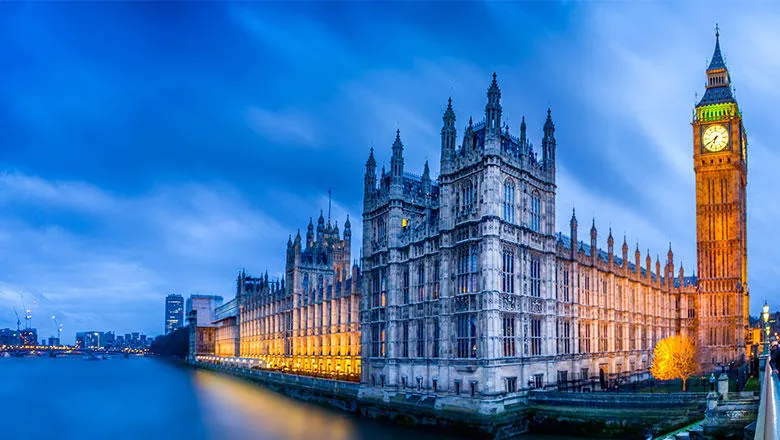Few people in the UK think politics is working for them

Democracy in theory and practice: how UK attitudes compare internationally
Read the research
- Democracy in theory and practice (2.49 MB PDF)
Few people in the UK think politics is working for them, with the country ranking firmly among the bottom half of an international league table for satisfaction with the political system – but this has not dented Britons' support for democracy, which has risen over the last two decades, according to new data.
The research, by the Policy Institute at King's College London, also finds support for the idea that experts, rather than government, should make political decisions is at a record high, and is greater than in any other western nation included in the study.
Meanwhile, the share of Britons identifying on the centre-left politically is at its highest in four decades.
The analysis was carried out as part of the World Values Survey (WVS), one of the largest and most widely used academic social surveys in the world, in operation since 1981.
The latest UK data was collected in 2022, with data for other nations collected at various points throughout the latest wave of the WVS, which spanned 2017 to 2022. It reveals:
- 17% of people in the UK indicate they are highly satisfied with how the political system is functioning these days – among the lowest of 23 countries analysed and on a par with satisfaction in Russia (16%), Mexico (17%) and Nigeria (15%).
- The UK also ranks far behind the likes of Norway (41%), Canada (36%) and Germany (36%) on this question, although it does come higher than France (13%), the US (12%) and Italy (12%).
- Among UK nations, Northern Ireland is by far the least satisfied with how its political system is functioning. Just 8% of the country's population indicate they are highly satisfied with how their political system is functioning these days – around half the proportion who say the same elsewhere in the UK.
- Northern Ireland is also the only UK country where a majority (56%) indicate they are not satisfied with the political system. Of the other nations included in the study, only Brazil (72%) fares worse on this measure.
Yet despite widespread dissatisfaction with how UK democracy is working in practice, the public haven't lost faith in it in principle, and have in fact become more supportive:
- In 1999, 76% of Britons thought democracy was a very or fairly good way of governing the country. In 2022, this was up to 90%.
- And much of this shift has come from a growing share of the public who think democracy is a very good way of governing. In 1999, 41% were of this view; in 2022, 64% were.
Support for democracy has increased among Millennials in particular – although Gen Z still lag behind:
- All adult generations have become more positive about democracy, but Millennials have seen the biggest improvement: 88% thought democracy was a good way of governing in 2022 – up from 67% in 2005.
- In 2005, 52% of Millennials said it was important for them to live in a democratically governed country, far below other generations. But this had risen to 74% by 2018 and was at the same level in 2022.
- 73% of Gen Z say democracy is a good way of governing the country – compared with just under 90% or more of other generations. However, given the changes seen among Millennials, this could increase as Gen Z ages.
In other positive trends, in 2022, 40% of Britons indicated they felt their country is governed in a highly democratic way – up from 32% in 2005.
However, the UK still ranks only mid-table internationally on this question – similar to France (35%) and Spain (41%), but far below other western nations such as Australia (50%), Canada (52%), Germany (59%), Norway (66%) and Sweden (66%).






